We can't find the internet
Attempting to reconnect
Something went wrong!
Hang in there while we get back on track
Erlang
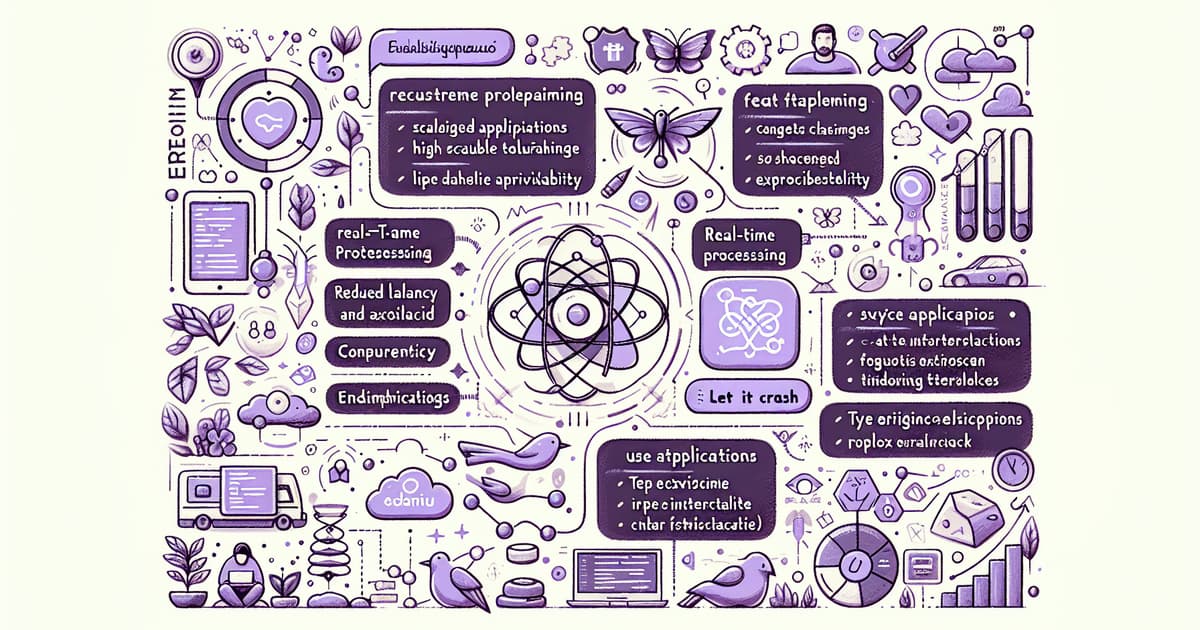
Erlang, a concurrent programming language with a strong emphasis on fault-tolerance and high-availability, forms the foundation upon which the Elixir ecosystem is built. Its underlying runtime, language constructs, and standard libraries empower developers to build scalable applications that excel in environments where uptime and data transport are critical, such as the fintech industry. Renowned for enabling cost savings—significantly reducing server expenses for companies like Pinterest and Bleacher Report—Erlang’s functionalities have been seamlessly integrated into Elixir, providing resilience, real-time processing, and reduced latency for enhanced user experiences.
Experts from the Erlang OTP team at Ericsson continue to expand and refine the language, diving into technical details that ensure Erlang's capabilities are at the cutting edge. Innovations such as Native Implemented Functions (NIFs) and custom libraries like EXGBoost enrich the Elixir landscape, offering powerful extensions for complex, real-world applications. The applicability of Erlang's philosophy, especially the 'let it crash' approach, manifests tangibly in both the creation of the language server solutions for Elixir and in the infrastructure powering globally distributed systems. Elixir’s Phoenix framework, a project thriving on the maturity and stability of Erlang, proves itself time and again as an adaptable platform for web applications, deploying features such as LiveView for real-time interactivity and tailored authentication methods.
Monitoring and diagnostics tools borne from the BEAM runtime offer observability into running systems, making debugging a more streamline process. Tools like Dialyzer promote static code analysis to minimize the introduction of type errors, and the Elixir core team continues to enhance the language with updates for improved performance, like compilation and boot time optimizations. With Erlang infrastructure in use at major tech conferences and implemented in projects from chat applications to health care solutions, its influence reverberates through industries. Further, the exploration of language interop, the use of TDD, the importance of system restart strategies, and the adoption of Elixir in replacing legacy systems all speak to the versatility of Erlang and the BEAM VM. Engagement from key figures such as José Valim and Saša Jurić, alongside contributions from many other developers, ensures the sustained growth and exploration of Erlang's potential in modern software development.

Exploring Best Practices for Deploying Erlang Applications Using Docker and Ansible
Jade Allen discusses the challenges and lessons learned while deploying Erlang applications in operational environments, focusing on Docker containers and Ansible scripting.

Overview of Erlang/OTP 27 Optimizations
A discussion on new record update optimizations in Erlang/OTP 27 and a history of optimizer improvements.

Insight into Erlang's Scheduler Functionality
Erlang is known for its fault tolerance and ability to handle high concurrency through an efficient scheduler. This article explores the details of the Erlang scheduler, which is instrumental in process management for the Erlang virtual machine (BEAM).

BEAM Languages in European University Academia
skwyckl is inquiring about universities in Europe that are involved in teaching and research involving BEAM languages, such as Erlang. They mention ELTE university in Budapest doing significant work with Erlang.

Simulating Recursive Closures in Elixir
This article discusses the challenge of implementing recursive closures in Elixir, a feature that is not straightforward due to the language's syntax and semantics.

Gleam v1.1.0 Release Highlights
Louis Pilfold announces the release of Gleam v1.1.0, introducing a host of new features and improvements such as language server enhancements, support for Bun JavaScript runtime, rebar support for Erlang, formatter improvements, and more.
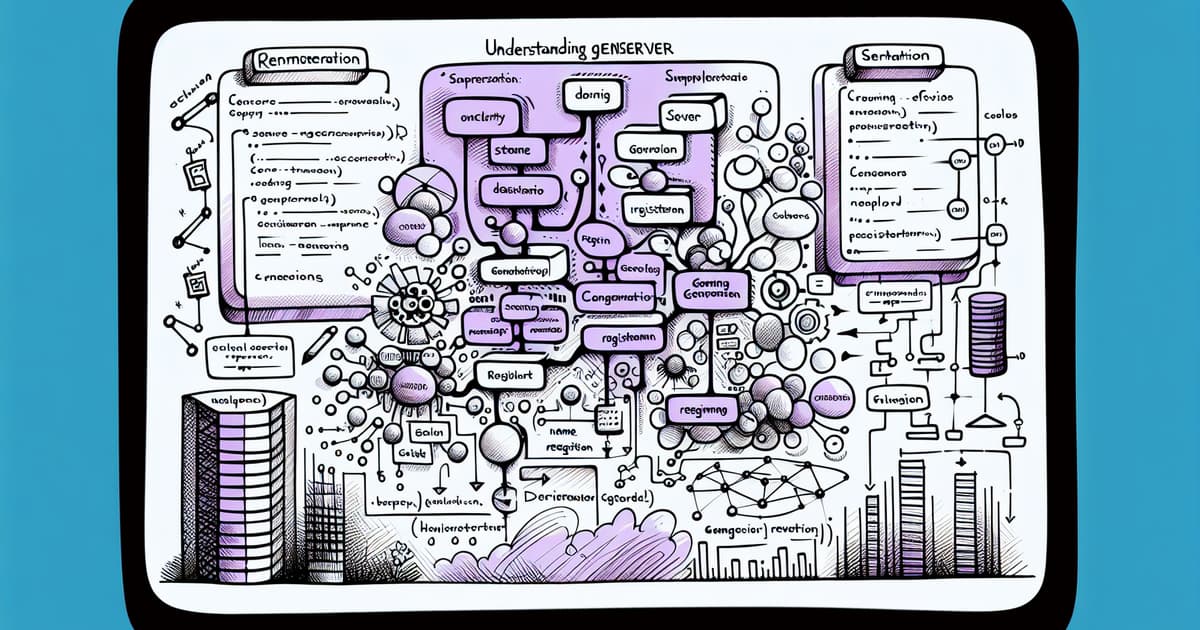
Understanding GenServer Name Registration Techniques in Elixir
In this comprehensive guide, Meraj Molla explores the various methods of registering GenServer names in Elixir to facilitate inter-process communication and management within local and distributed Erlang systems.

Improving Erlang Code Maintainability with Codemods
Alan Zimmerman's talk discusses how codemods and a new framework can simplify refactoring Erlang code bases.

Integrating Elixir Structs with Erlang
In this Code BEAM Europe 2023 lightning talk by Robert Virding, he discusses the interoperability challenges between Erlang and Elixir, particularly in using Elixir's structs in Erlang, and explores a solution.

Discussing Elixir's Role in Developing the Erlang Ecosystem
The discussion features insights from Francesco Cesarini, founder of Erlang Solutions, and Andrea Leopardi, a member of the Elixir Core Team. They delve into the evolution of Erlang from a singular language to a diverse ecosystem, detailing the emergence of various languages on the BEAM and the influence of Elixir on Erlang's ongoing development.

Exploring Elixir Application Clustering
Mark Ericksen explains the concept of clustering Elixir applications from a local environment to the cloud, particularly using Fly.io's platform.

In-depth Guide to Elixir GenServer Functionality
An extensive guide on GenServer, a behavior module in Elixir for creating concurrent, stateful processes based on the Erlang OTP framework.

Introduction of Labeling BEAM Processes for Improved Observability
Nathan Long discusses the introduction of a new feature in Erlang/OTP 27.0, which allows BEAM processes to be labeled for enhanced observability in Elixir applications.

Invalidate Cache in Erlang Clusters Using Postgres WAL
Chase Granberry discusses how to effectively utilize the Postgres Write-Ahead Log (WAL) to invalidate cache within an Erlang cluster using Elixir and the BEAM virtual machine.

Exploring Erlang Tracing and an Elixir Library for Easier Usage
Lars Wikman presents on the capabilities of Erlang's tracing mechanisms and his own experimental Elixir library aimed at simplifying its use for Elixir developers.

Leveraging Technology for Fintech Success
This article discusses the crucial role that the underlying technology plays in enabling financial services success, highlighting how Erlang and Elixir are well-suited for the fintech industry.

Advancement Strategies for an Elixir Developer
An individual expressing a desire to advance their career as an Elixir developer seeks advice on how to 'level up' their skills, considering the creation of OTP clusters, LiveView web applications, learning Erlang, and understanding AWS.
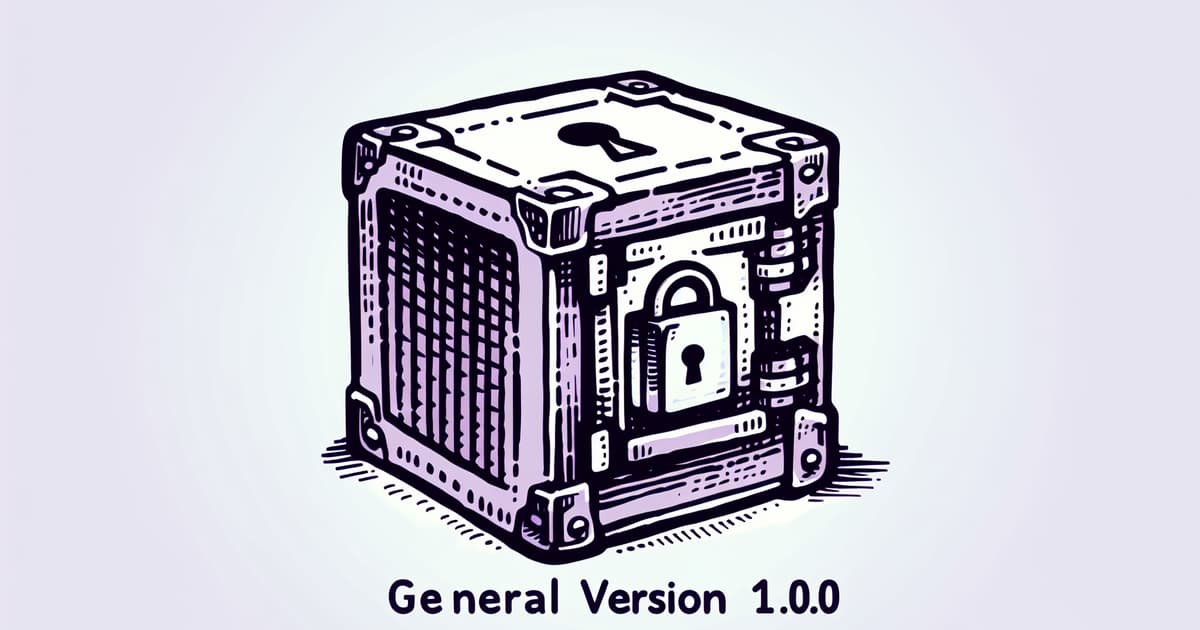
Stable Release of Gleam v1.0.0
Louis Pilfold announces the release of Gleam v1.0.0, marking the language's first stable version suitable for production systems.

Deep Dive into Erlang OTP with Ericsson Developers
In this episode of Beam Radio, the hosts engage with Ingela Anderton Andin and Kiko Fernandez-Reyes from the Erlang OTP team at Ericsson. They discuss the inner workings of the runtime, language, and standard libraries central to the Erlang ecosystem.

Test Driven Development (TDD) with Erlang
Brujo Benavides provides an in-depth look into using Test Driven Development (TDD) for writing code in Erlang. He emphasizes that TDD is not only about writing tests, but about letting tests guide the development process. The talk covers the application of TDD from the basics to more complex systems, including building GenServers and applications while maintaining test coverage.

Elixir in Production: How Felt.com and SleepEasy.app Utilize Elixir Systems
Mark Ericksen, David Bernheisel, and Cade Ward discuss the use of Elixir in supporting applications at Felt.com and SleepEasy.app, including industry insights with guest Tyler Young.

How to Add Slack Notifications to Elixir Log System
Romario López describes a method for integrating Slack notifications into Elixir's logging system utilizing new Erlang/OTP log handlers.

Proposed JSON Library for Erlang/OTP
Lukas Larsson introduced a new Erlang Enhancement Proposal (EEP-68) to include a JSON encoding/decoding library in the upcoming Erlang/OTP releases, inviting community feedback.

Compilation of BEAM Devroom Talks from FOSDEM 2024
Riccardo Binetti announced that all the talks from the BEAM Devroom at FOSDEM 2024 are now available, expressing gratitude to all the participants and presenters, and hopes to continue the event next year.
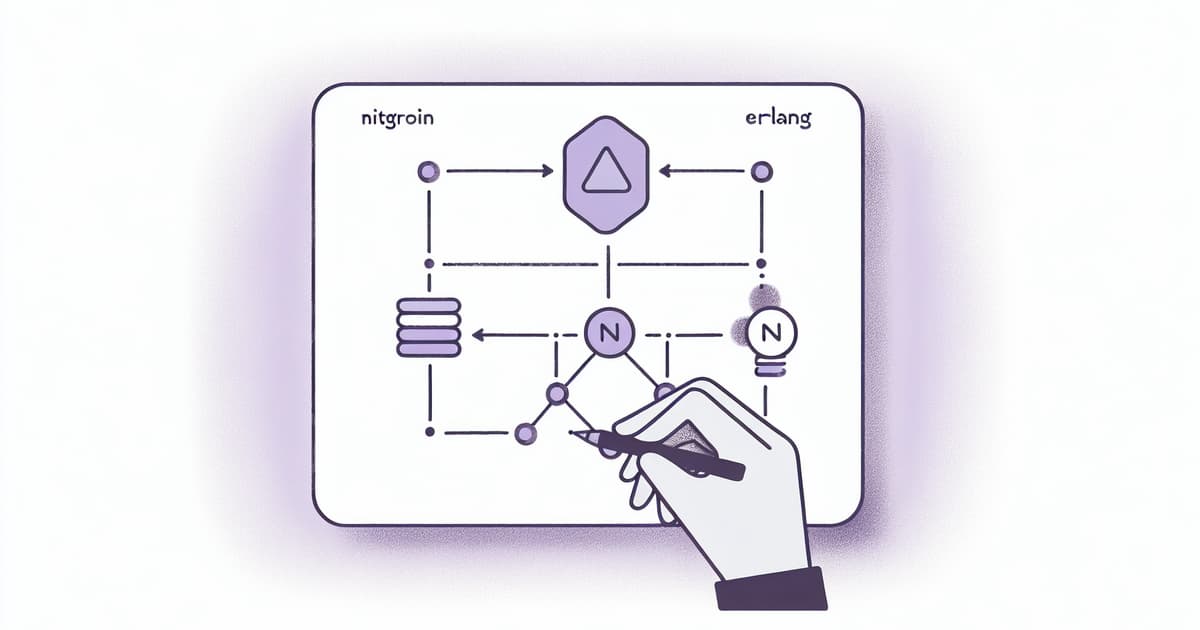
Overview of Fullstack Web Development with Nitrogen in Erlang
David Cao's talk on full stack web development using the Nitrogen framework in Erlang featured at Elixir Fortaleza Conf 2023.

Overcoming Global State in Tests with Localized State for Async Elixir ExUnit Tests
JB Steadman discusses strategies to avoid using `async: false` in ExUnit tests by localizing global state, allowing tests to run asynchronously and independently.

Tigris: A Global Key Value Database with S3-like Capabilities
Jason Stiebs discusses Tigris, a globally synced, S3-like key-value database built on Fly.io, and its potential applications.

Latest Updates and Libraries in the Elixir Ecosystem
This episode covers Phoenix LiveView's progress towards 1.0, the introduction of the example_test utility for Elixir, and Erlang's proposed JSON standard library integration.

Understanding the High-Level Overview of OTP in Erlang
This article offers a comprehensive overview of the high-level aspects of the Erlang/OTP architecture and how it enables the development of stable and scalable systems.

Discussion on Real-Time Product Development Using Elixir and Phoenix
Filipe Cabaco, along with hosts Allen Wyma and Adi Iyengar, delve into the real-time product development at Supabase using Elixir and Phoenix channels, covering topics such as load testing, scalability, and Postgres optimizations.

Implementing Observability in Phoenix Applications with Grafana
This article explains the process of setting up observability in Phoenix applications using the Grafana stack: Loki, Mimir, and Tempo with Docker Compose.

Integrating Mutable Data in Elixir Projects with Rust and Rustler
The article discusses how mutable state management, normally not a fit for Elixir, can be incorporated into Elixir projects by using Rust through Rustler.

Exploring the Full Potential of the BEAM Runtime
In a discussion at Code BEAM Europe 2023, Lars Wikman interviews both Saša Jurić, author and advocate for the Elixir programming language, and José Valim, the creator of Elixir, to discuss the untapped potential of the BEAM virtual machine. They explore what the community could be doing beyond the current applications and utilize the BEAM more fully.

Examining the Synergy Between Transactional Systems and Erlang/Elixir Technologies
Lee Sigauke discusses the natural fit of Erlang and Elixir for transactional systems and their inherent advantages such as fault tolerance and real-time processing capabilities.
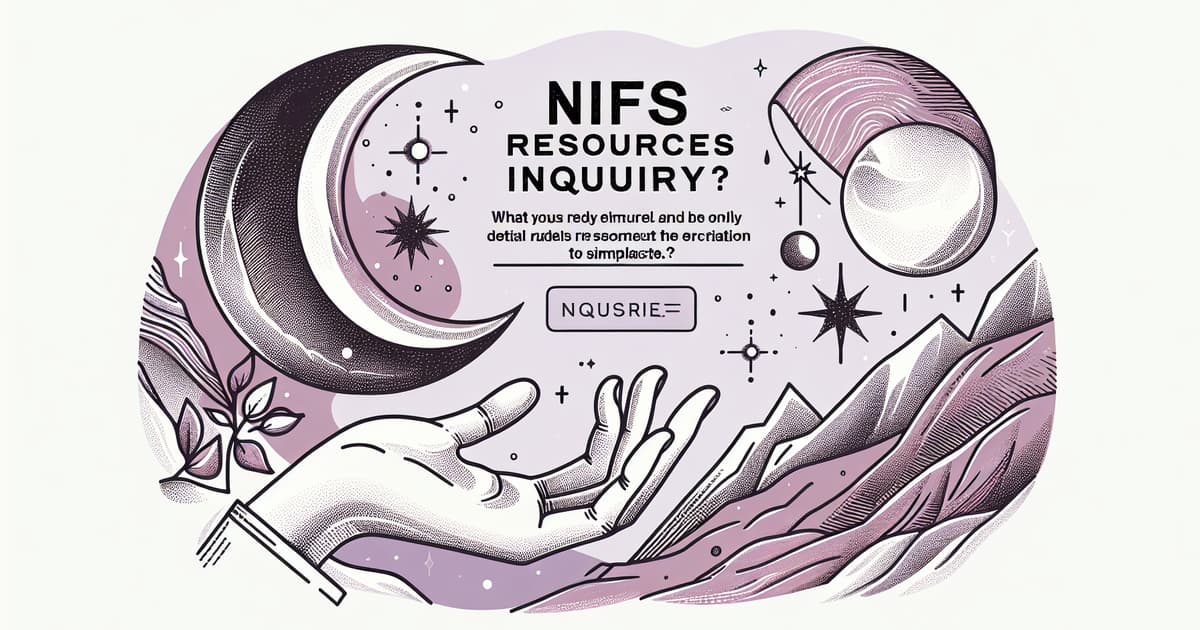
Seeking In-Depth NIFs Resources and Best Practices
drolenc is in search of comprehensive resources or books specifically focused on the creation of NIFs (Native Implemented Functions) in Elixir.

Development of the ElixirConf Chat Application using LiveView Native
Cynthia Gandarilla outlines the journey of creating a chat application for ElixirConf 2023 using LiveView Native, showcasing the technology's ability to save time and money in mobile app development.
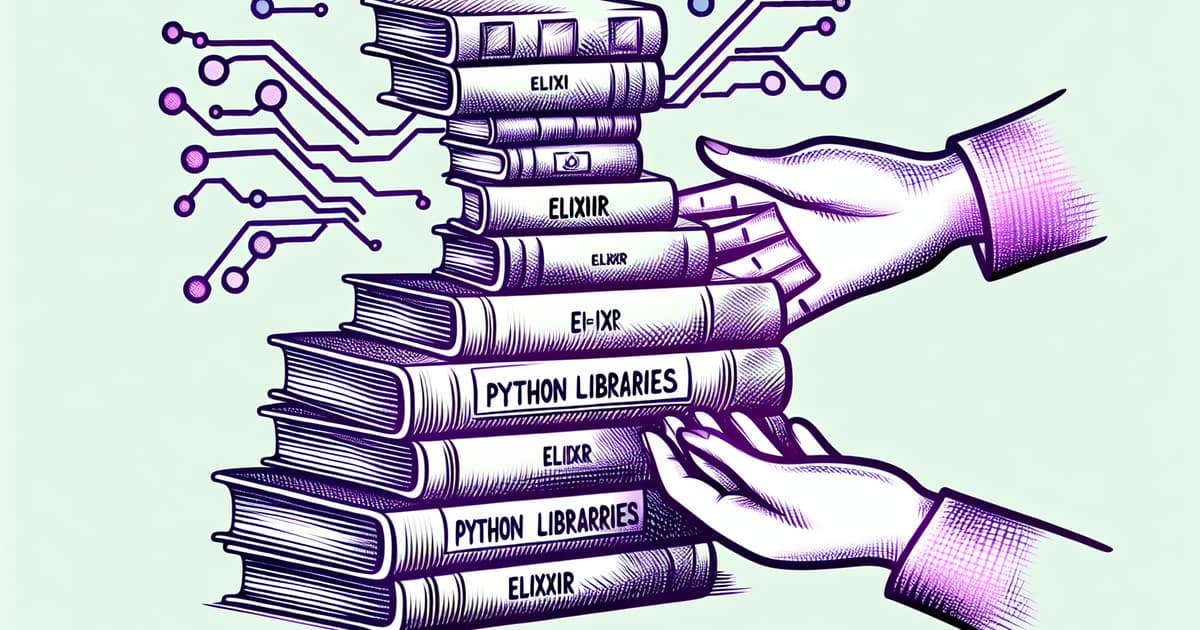
Integrating Python Libraries with Elixir
Maksymilian Jodłowski explores the utilization of Python libraries in the Elixir application by using ErlPort, which facilitates communication between Elixir and Python. This approach is helpful when specific libraries are missing in Elixir or when a developer prefers to use the abstractions from Python libraries they are more familiar with.
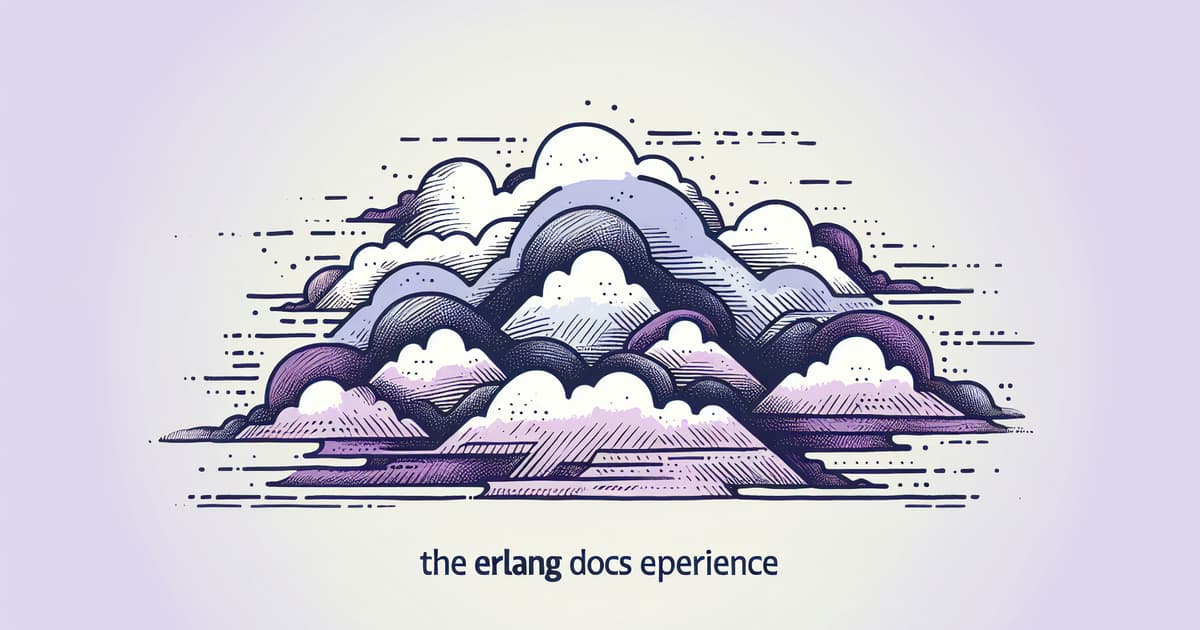
Elixir Newcomer's Struggle with Erlang Documentation
The author, a novice Elixir/Erlang programmer, shares their experience with Erlang's documentation after attempting to use the Erlang standard library for socket and gen_tcp operations. Finding it challenging compared to the more approachable Elixir docs, they question if the difficulty is a universal issue or a personal skill gap.

Elixir Community News and Updates in Podcast Episode 187
Mark Ericksen, David Bernheisel, and Cade Ward cover the latest news in the Elixir community, including the ten-year anniversary of the Phoenix framework, a new interactive language tour by Gleam, updates to ElixirLS, and Erlang's adoption of ExDoc for documentation.

Understanding the Phoenix Framework's Popularity
Szymon Soppa explores why the Phoenix web framework, based on the Elixir programming language, is lauded as highly productive and scalable, ideal for modern web development.

Exploring Elixir as a New Programming Language in 2024
pudge_dodging recounts their experience with starting to learn a new programming language every year, this time considering Elixir after not enjoying Rust the previous year. They ask the community for advice on whether to choose Elixir or Erlang, resources for learning Elixir, project ideas, and the relevance of Elixir in 2024, especially concerning machine learning.

Development of the Livebook Desktop Application
Wojtek Mach discusses the process of building Livebook Desktop, the challenges encountered, and the underlying open-source technology used to distribute Elixir applications on desktop platforms.

Exploring Livebook and Computational Notebooks in Elixir
José Valim, creator of Elixir, shares insights on Livebook, a computational notebook for Elixir, emphasizing the integration of code, documentation, and rich visualizations within a functional programming environment. In his Lambda Days 2023 presentation, Valim highlights the importance of immutability in Elixir and how this trait, along with the process model, enables reproducible workflows in Livebook.

Understanding :gen_statem in Elixir
Cameron Duley delves into the usage of the :gen_statem behaviour in Elixir and sheds light on when and how to use it effectively, especially in handling network connections and protocols.

In-Depth Examination of the Phoenix Framework in Elixir
Lars Wikman delves into the intricacies of Phoenix, the de facto web framework for the Elixir programming language.

Overview of the Elixir Programming Language's Popularity and Features
Szymon Soppa offers a comprehensive guide on the Elixir programming language, explaining its creation, features, and benefits in the context of modern programming needs.

Understanding Phoenix LiveView for Real-Time Web Applications
Michał Buszkiewicz provides an in-depth introduction to Phoenix LiveView, its capabilities, and its role within the Phoenix ecosystem for building interactive web applications.
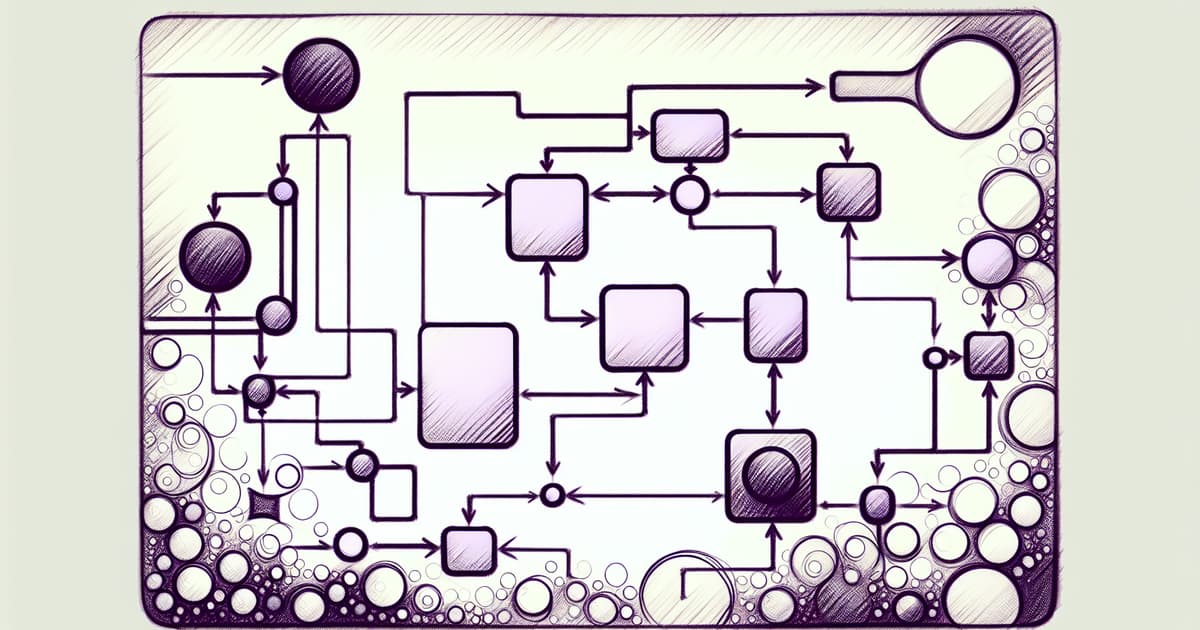
Retrieving the Parent of an Elixir Process in OTP 25.0
JB Steadman discusses the new feature in OTP 25.0 that allows retrieval of a child process's parent in Elixir.

Improving Elixir Development with the Ash Framework
Zach Daniel, along with hosts Adi Iyengar and Allen Wyma, discuss the capabilities and advantages of using the Ash Framework for Elixir programming.

Guide for Installing Elixir 1.16 on Ubuntu
Hezwat is seeking assistance for upgrading to Elixir 1.16 on a base Ubuntu system, specifically for running Phoenix, as the version available in the apt repository is outdated.
© HashMerge 2025